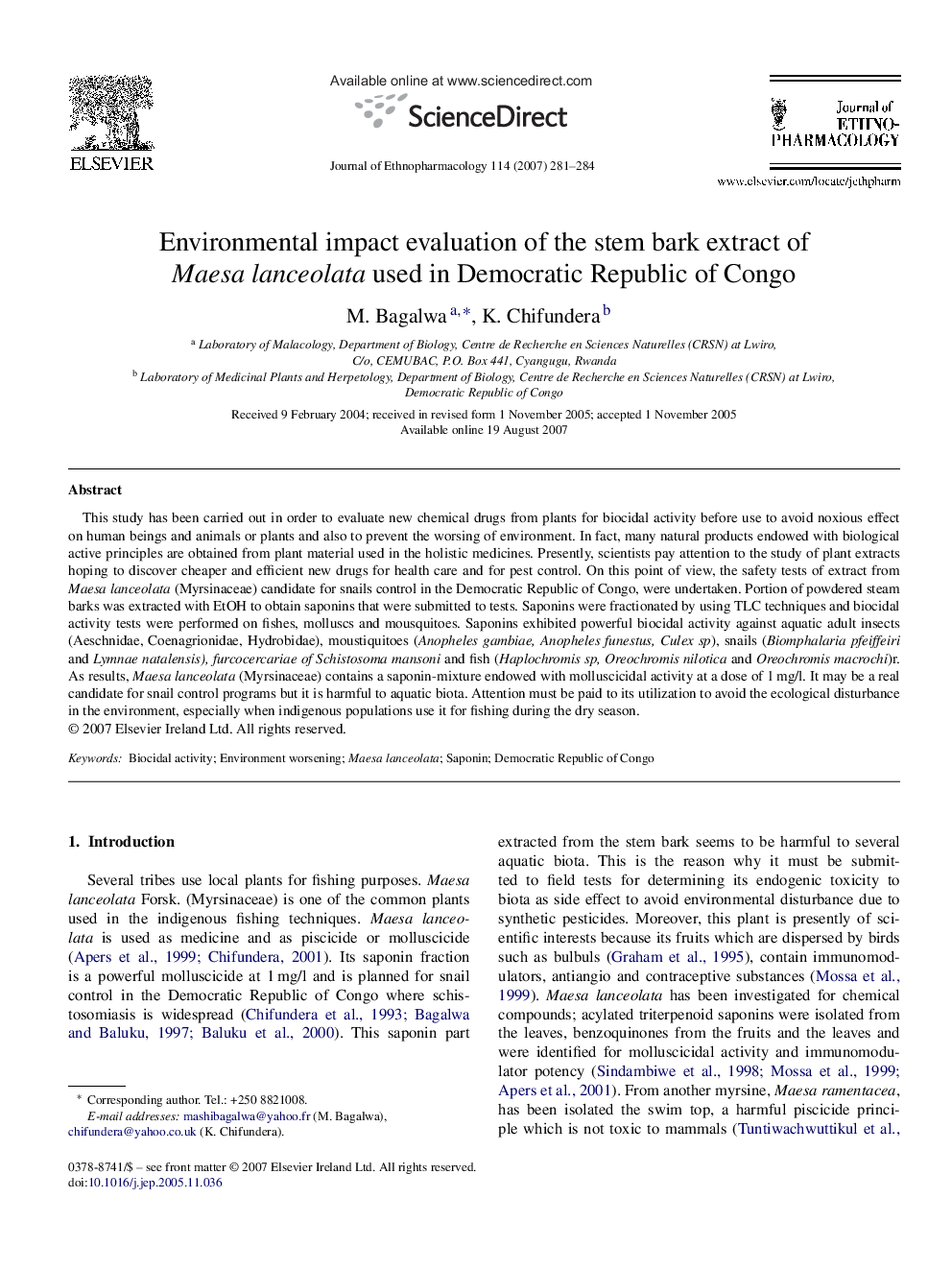| Article ID | Journal | Published Year | Pages | File Type |
|---|---|---|---|---|
| 2547789 | Journal of Ethnopharmacology | 2007 | 4 Pages |
This study has been carried out in order to evaluate new chemical drugs from plants for biocidal activity before use to avoid noxious effect on human beings and animals or plants and also to prevent the worsing of environment. In fact, many natural products endowed with biological active principles are obtained from plant material used in the holistic medicines. Presently, scientists pay attention to the study of plant extracts hoping to discover cheaper and efficient new drugs for health care and for pest control. On this point of view, the safety tests of extract from Maesa lanceolata (Myrsinaceae) candidate for snails control in the Democratic Republic of Congo, were undertaken. Portion of powdered steam barks was extracted with EtOH to obtain saponins that were submitted to tests. Saponins were fractionated by using TLC techniques and biocidal activity tests were performed on fishes, molluscs and mousquitoes. Saponins exhibited powerful biocidal activity against aquatic adult insects (Aeschnidae, Coenagrionidae, Hydrobidae), moustiquitoes (Anopheles gambiae, Anopheles funestus, Culex sp), snails (Biomphalaria pfeiffeiri and Lymnae natalensis), furcocercariae of Schistosoma mansoni and fish (Haplochromis sp, Oreochromis nilotica and Oreochromis macrochi)r. As results, Maesa lanceolata (Myrsinaceae) contains a saponin-mixture endowed with molluscicidal activity at a dose of 1 mg/l. It may be a real candidate for snail control programs but it is harmful to aquatic biota. Attention must be paid to its utilization to avoid the ecological disturbance in the environment, especially when indigenous populations use it for fishing during the dry season.
